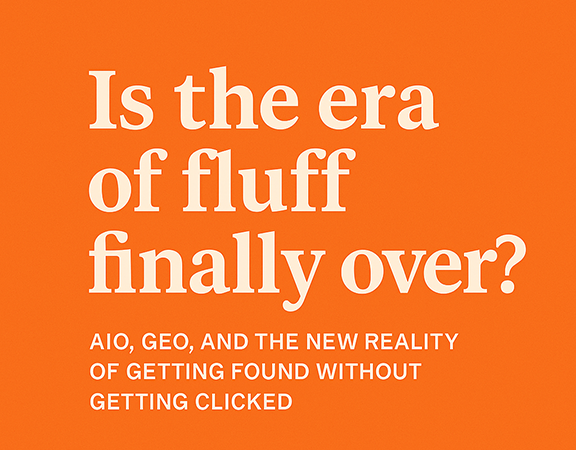What Are GEO and AIO, and Should You Care Yet? In the fast-moving world of digital marketing, new acronyms are always popping up—but two are starting to stick: GEO (Generative Engine Optimization) and AIO (Artificial Intelligence Optimization). These terms represent the future of search, especially as platforms like ChatGPT, Perplexity, and Google Gemini become more mainstream.
Let’s break down what they are, if your service business should care, and why it’s smart to start optimizing now.
What Is GEO?
Generative Engine Optimization is about making sure your business shows up in AI-generated answers rather than just on search engine results pages. Instead of linking to a list of websites, tools like ChatGPT summarize answers for users—and if your content is part of that summary, you win.
This matters for search phrases like:
-
“Who fixes roof leaks in East Brunswick?”
-
“Is drain cleaning safe for old pipes?”
-
“What’s the average cost of power washing a house in New Jersey?”
These types of searches are becoming more common on platforms powered by artificial intelligence.
What Is AIO?
Artificial Intelligence Optimization focuses on making your content easy for AI tools to read, index, and reuse. Think of it as “machine readability”:
-
Clear subheadings
-
Simple answers to common questions
-
Proper formatting
-
Semantic consistency
This doesn’t replace SEO—it’s a layer on top that helps AI understand and trust your content.
Is This Important for Service Companies?
Yes—especially over the next 1–2 years.
Right now, traditional SEO (Google Maps rankings, local listings, blog content, etc.) is still what drives the most leads for service businesses. But AI tools are quickly becoming the first place people go when they want a direct answer.
Whether you’re a plumber, roofer, landscaper, electrician, or HVAC tech, your business can benefit from showing up in AI-generated answers when people ask things like:
-
“Why does my AC smell like mildew?”
-
“How do I know if I need a French drain?”
-
“What’s the best time to reseed a lawn in New Jersey?”
GEO and AIO are not just for tech blogs or eCommerce—they apply to everyday service questions your customers are already asking online.
What If the Search Isn’t Local?
That’s a valid concern — after all, if someone in another state sees your content, they’re not booking your service. But here’s the catch: when AI tools and search engines see your website consistently answering common questions (even for a broader audience), it boosts your overall authority. That authority helps improve your local rankings, where it actually matters. Plus, many local customers ask general, non-location-based questions first. If your content shows up with a solid answer and your business is nearby, you’re instantly positioned as the expert they can trust and hire. It’s not about ranking everywhere — it’s about becoming the go-to in your area by being recognized as a source worth citing.
Why It’s Smart to Start Now
Let’s be honest: AI-generated search isn’t dominating yet—but it’s coming fast. If you wait until it becomes the norm, you’ll be playing catch-up.
By starting now:
-
You build trust with AI tools that already crawl your site
-
You future-proof your content strategy
-
You stand out early, while most competitors aren’t paying attention
At Five Star SEO, we’re already adapting your strategy behind the scenes—adding more structured content, question-based headers, and schema markup that helps AI know who you are and what you do.
Bottom Line
GEO and AIO aren’t just hype—they’re a glimpse into what’s next. If your business relies on local searches and answering common customer questions (and let’s be real, most do), then this isn’t something to ignore.
It won’t replace SEO—it will add another layer to how people find and trust your business.
Want to talk strategy? We’re here to help.









